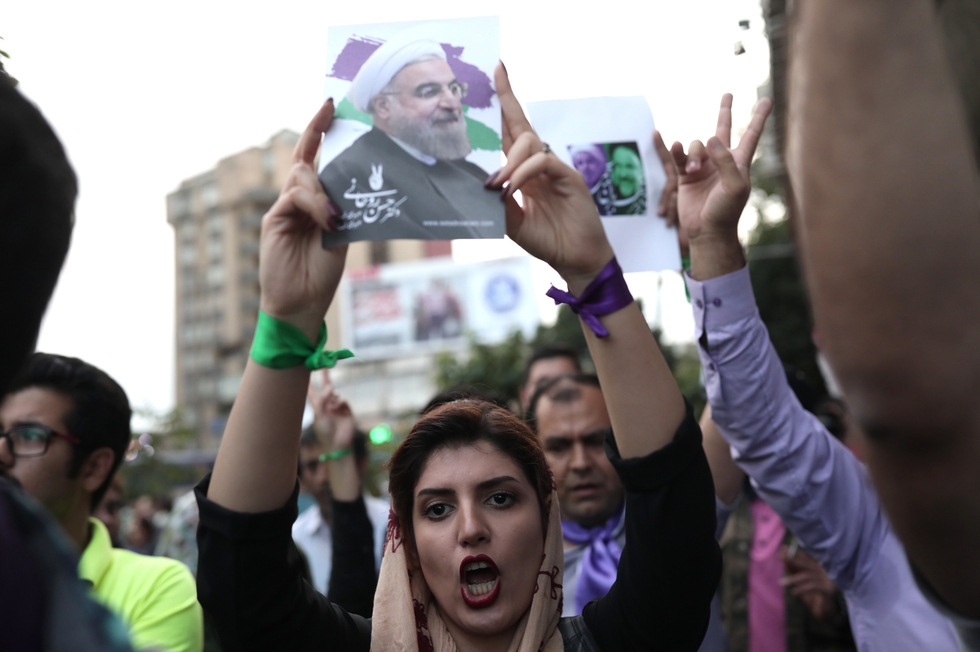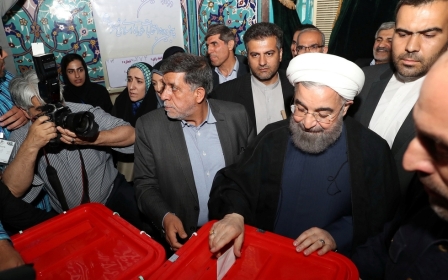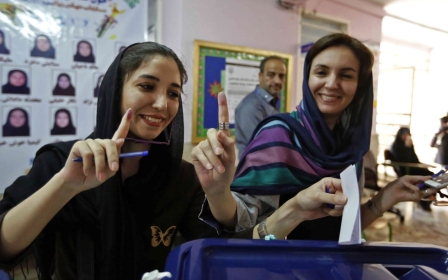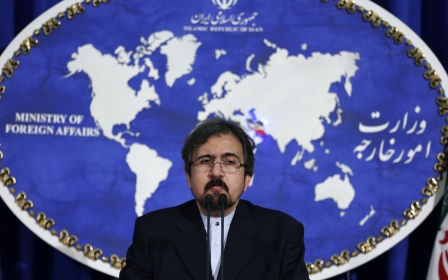Iran reformists sweep to power in major cities

Iran's coalition of reformists and moderates has swept to power in major cities across the country, results showed on Monday, redrawing the political map and amplifying the resounding re-election of President Hassan Rouhani.
The coalition now has control of the six largest Iranian cities, including Tehran, the holy city of Mashhad and tourist hotspot Isfahan - and could capture more when final results are announced.
Almost all major cities were previously in the hands of conservatives, but Friday's vote showed that new tactics by the reformist camp were helping them beat the system's restrictions.
The intelligence services and conservative-dominated judiciary can effectively veto candidates, and have blocked hundreds of reformists over the years.
That left many voters unsure who to back in the past, so the reformist leadership started providing lists of their preferred candidates, sharing them via social media.
This tactic showed resounding success at parliamentary elections in 2016, when the reformist "list of hope" swept all 30 seats for Tehran.
They repeated the trick at the weekend, taking all 21 council seats in the capital and displacing the conservatives for the first time since 2003.
"This trend for lists has just now reached other cities," said Ali Tajerinia, a former reformist lawmaker in Mashhad.
"In 2013, we won the presidential election but not the city councils. This year, we were successful in both," he told the Aftabe Yazd reformist newspaper.
Reformists joined forces with the more centrist faction after their movement was decimated by a brutal crackdown against anti-regime protests in 2009.
Two of its key leaders remain under house arrest, while the godfather of the movement, former president Mohammad Khatami, is banned from appearing in the media.
But Khatami's influence remains strong, and he has thrown his support behind moderate cleric Rouhani, helping him win a resounding re-election victory over hardliner Ebrahim Raisi.
The moderate-reformist coalition has also taken power in symbolic cities such as Shiraz, Yazd and the port town of Bandar Abbas.
"The people have voted and put their trust in the reformists after many years," said Zahra Nejadbahram, one of six women elected to the Tehran city council.
"We must protect this trust in any way possible," she told the Shargh daily.
Among the newly elected officials gaining attention was a 42-year-old street sweeper who joins the Rasht city council on the Caspian coast.
In Khoramabad, a city of 500,000 near the Iraqi border, a 60-year-old bird seller took first place after a simple campaign that involved walking the streets from dawn to dusk introducing himself to people.
Iran's presidential and council elections were held alongside each other on Friday.
Councils in Iran look after day-to-day affairs such as public transport, infrastructure and cultural centres.
Women have boosted their presence on councils in many parts of the country, doubling their number in the capital.
In the traditional Sunni-majority province of Sistan-Baluchistan, the total number of female city and village councillors increased from 185 to 415, according to the ISNA news agency.
New MEE newsletter: Jerusalem Dispatch
Sign up to get the latest insights and analysis on Israel-Palestine, alongside Turkey Unpacked and other MEE newsletters
Middle East Eye delivers independent and unrivalled coverage and analysis of the Middle East, North Africa and beyond. To learn more about republishing this content and the associated fees, please fill out this form. More about MEE can be found here.




